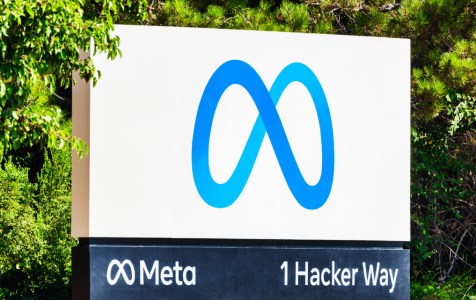Meta pushes back strongly against government's anti-scam measures and regulations
By
- Replies 4
In an era where digital connectivity is at the heart of daily life, the prevalence of online scams has become a significant concern for Australians.
With losses amounting to a staggering $2.74 billion from over 601,000 scams last year alone, the Australian Government has been spurred into action, proposing a robust Scams Prevention Framework (SPF) to safeguard its citizens.
However, this well-intentioned move has met resistance from an unexpected quarter: Meta, the social media behemoth behind platforms like Facebook and Instagram.
The proposed SPF aims to establish a regulatory regime that places the responsibility squarely on the shoulders of companies to protect Australians from the scourge of scams.
This would involve designating specific sectors, including social media platforms, as 'regulated sectors' and mandating their implementation of effective governance and strategies to prevent, detect, report, disrupt, and respond to scams.
Failure to comply could result in hefty fines, potentially as high as $50 million, signalling the government's commitment to consumer protection.
The framework, set to become part of the Competition and Consumer Act 2010, also includes the creation of an external dispute resolution scheme and a Commission to monitor and enforce compliance.
The Australian Financial Complaints Authority (AFCA) is poised to operate this scheme, with the government pledging $14.7 million over two years to establish a clear pathway for scam victims to seek compensation.
Assistant Treasurer and Minister for Financial Services Stephen Jones highlighted the difficulty of obtaining redress from social media companies.
He emphasised that under the new framework, banks and social media platforms could be liable if they fail to implement adequate protections.
With its vast user base and significant revenue, Meta acknowledges the severity of the scam problem but is vehemently opposed to the government's approach.
In a submission to the proposed laws, Meta criticised the external dispute resolution regime as 'fundamentally problematic,' arguing that the compensation requirements would paradoxically make Australia a more attractive target for scammers.
The company also raised concerns about the complexity of apportioning liability, given the multitude of parties involved in a scam, and warned that the law could result in the overzealous removal of content, affecting not only fraudulent material but also legitimate advertising.
Meta's global security policy director, David Agranovich, expressed the view that the SPF framework encouraged 'finger-pointing' rather than addressing the root of the scam ecosystem.
He advocated for a regulatory framework that promotes industry collaboration and intelligence sharing to reduce the prevalence of scams.
Despite its opposition to the SPF, Meta has not been idle in the fight against scams.
This year, the company has taken several actions, including forming an information-sharing partnership with the National Anti-Scam Centre, collaborating with the banking sector, implementing a new advertising verification program, strengthening enforcement policies, taking increased legal action against scammers, and partnering with business organisations.
The SPF proposal is part of a broader wave of regulation targeting social media platforms in Australia.
This includes the News Media and Digital Platforms Mandatory Bargaining Code, which requires tech giants like Meta and Google to remunerate news businesses fairly for their content.

Have you or someone you know been affected by online scams? What are your thoughts on the government's proposed measures and Meta's response? Share your experiences and opinions in the comments below.
With losses amounting to a staggering $2.74 billion from over 601,000 scams last year alone, the Australian Government has been spurred into action, proposing a robust Scams Prevention Framework (SPF) to safeguard its citizens.
However, this well-intentioned move has met resistance from an unexpected quarter: Meta, the social media behemoth behind platforms like Facebook and Instagram.
The proposed SPF aims to establish a regulatory regime that places the responsibility squarely on the shoulders of companies to protect Australians from the scourge of scams.
This would involve designating specific sectors, including social media platforms, as 'regulated sectors' and mandating their implementation of effective governance and strategies to prevent, detect, report, disrupt, and respond to scams.
Failure to comply could result in hefty fines, potentially as high as $50 million, signalling the government's commitment to consumer protection.
The framework, set to become part of the Competition and Consumer Act 2010, also includes the creation of an external dispute resolution scheme and a Commission to monitor and enforce compliance.
The Australian Financial Complaints Authority (AFCA) is poised to operate this scheme, with the government pledging $14.7 million over two years to establish a clear pathway for scam victims to seek compensation.
Assistant Treasurer and Minister for Financial Services Stephen Jones highlighted the difficulty of obtaining redress from social media companies.
He emphasised that under the new framework, banks and social media platforms could be liable if they fail to implement adequate protections.
With its vast user base and significant revenue, Meta acknowledges the severity of the scam problem but is vehemently opposed to the government's approach.
In a submission to the proposed laws, Meta criticised the external dispute resolution regime as 'fundamentally problematic,' arguing that the compensation requirements would paradoxically make Australia a more attractive target for scammers.
The company also raised concerns about the complexity of apportioning liability, given the multitude of parties involved in a scam, and warned that the law could result in the overzealous removal of content, affecting not only fraudulent material but also legitimate advertising.
Meta's global security policy director, David Agranovich, expressed the view that the SPF framework encouraged 'finger-pointing' rather than addressing the root of the scam ecosystem.
He advocated for a regulatory framework that promotes industry collaboration and intelligence sharing to reduce the prevalence of scams.
Despite its opposition to the SPF, Meta has not been idle in the fight against scams.
This year, the company has taken several actions, including forming an information-sharing partnership with the National Anti-Scam Centre, collaborating with the banking sector, implementing a new advertising verification program, strengthening enforcement policies, taking increased legal action against scammers, and partnering with business organisations.
The SPF proposal is part of a broader wave of regulation targeting social media platforms in Australia.
This includes the News Media and Digital Platforms Mandatory Bargaining Code, which requires tech giants like Meta and Google to remunerate news businesses fairly for their content.
Key Takeaways
- The Australian Government has proposed a Scams Prevention Framework (SPF) to tackle the significant problem of scams, particularly on social media platforms, with Australians losing billions to scams annually.
- Under the proposed SPF, companies such as Meta could be designated within a 'regulated sector' and hence be required to implement measures to prevent, detect, report, disrupt, and respond to scams, with the possibility of fines up to $50 million for non-compliance.
- Meta has strongly opposed the SPF, particularly the external dispute resolution regime, claiming it would make Australia an attractive target for scammers
- The SPF would also establish an external dispute resolution scheme managed by the Australian Financial Complaints Authority (AFCA).








